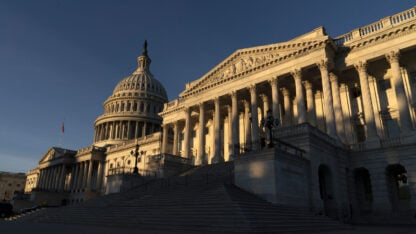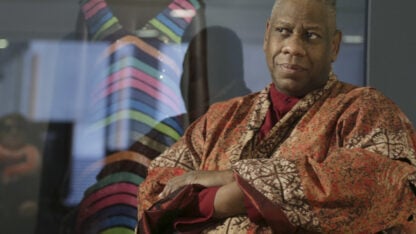Tenants union fights for recognition, ‘respect’ at Atlanta subsidized housing complex
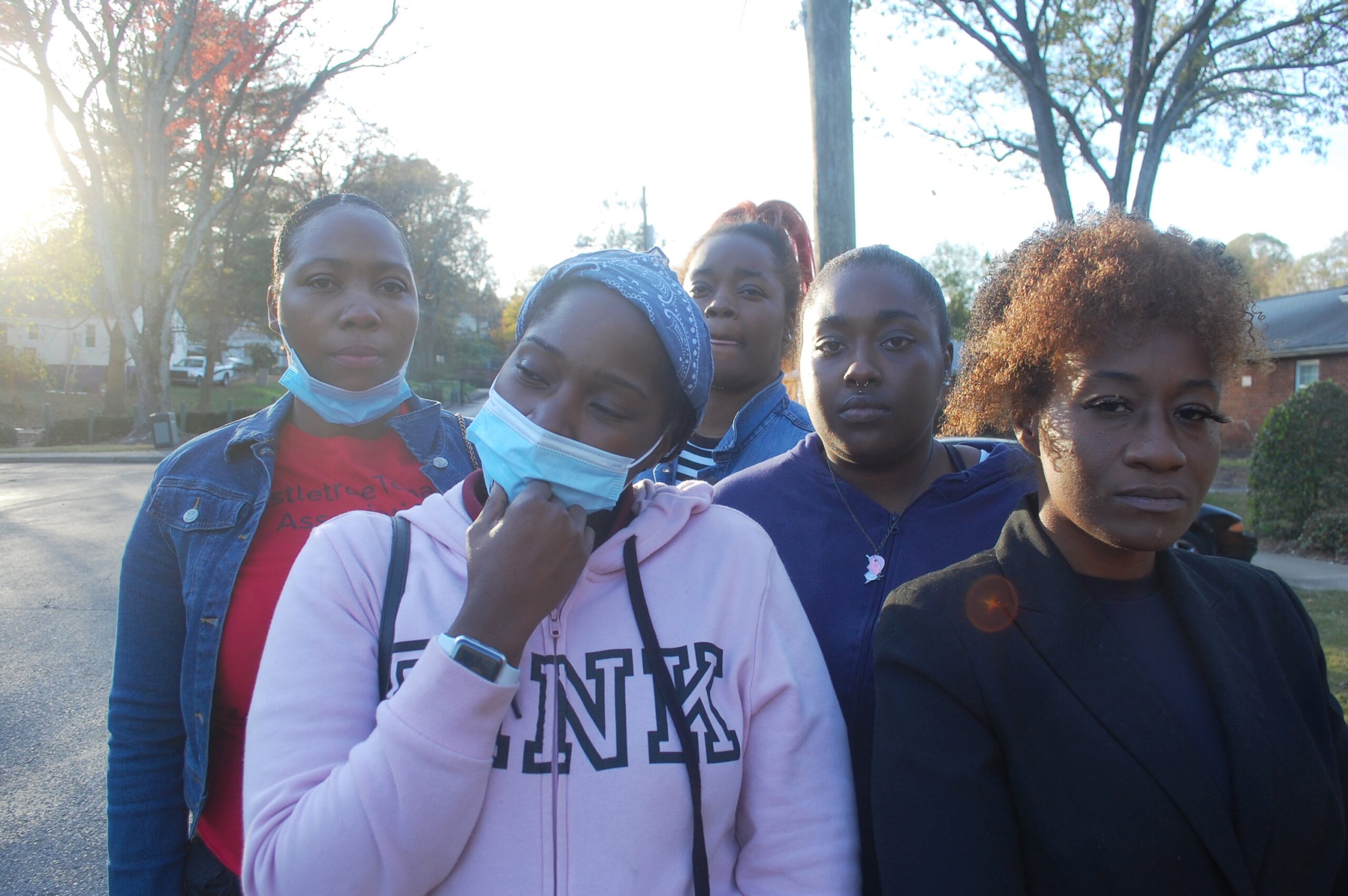
Tenants at Trestletree Village are organizing for a voice in their subsidized housing complex. They’ve had trouble getting management — and some homeowners in the neighborhood — to listen. Pictured from left to right: Shikia Snipes, Velissa Sims, Shikina Jackson, Tempestt Sims and Miracle Fletcher.
Stephannie Stokes / WABE
Tenants in subsidized housing often have little power, especially in cities like Atlanta, where affordable units are in high demand and waitlists at properties that offer assistance are long.
Despite that, a handful of tenants are organizing for a voice at their federally funded Section 8 apartments in southeast Atlanta.
Now they’re waiting for people to listen.
The tenants know Trestletree Village is not like the neighborhood around it. As Miracle Fletcher considers how to describe the increasingly wealthy area just outside their income-based units, she smirks.
She answers like a Realtor.
“We are nestled in the heart of Grant Park, Ormewood Park, surrounded by beautiful homes adjacent to the BeltLine,” she says.
Standing with four other tenants in the Trestletree courtyard, Fletcher points to the Southside BeltLine just at the edge of the property. The trail is one reason the “beautiful homes” nearby sell for $500,000.
But the BeltLine travels above Trestletree. It curves around the single-story red brick buildings at a height of about 30 feet. So as people walk along the path, the complex is beneath them.
“They’re looking down on us, yeah,” Fletcher says.
That image reflects how these tenants feel sometimes. They say their property manager at Trestletree treats them like they’re lesser.
They can’t even gather outside, like they are now in the courtyard, without worrying they’ll get in trouble, Fletcher says.
“This setting — how we’re here — is grounds for a lease violation because we’re loitering,” she says.
On other days, tenants can receive a lease violation for having family over. Management may decide their siblings are a safety issue. Letting kids take out the trash can also be enough for a violation because the kids may drop trash on the ground.
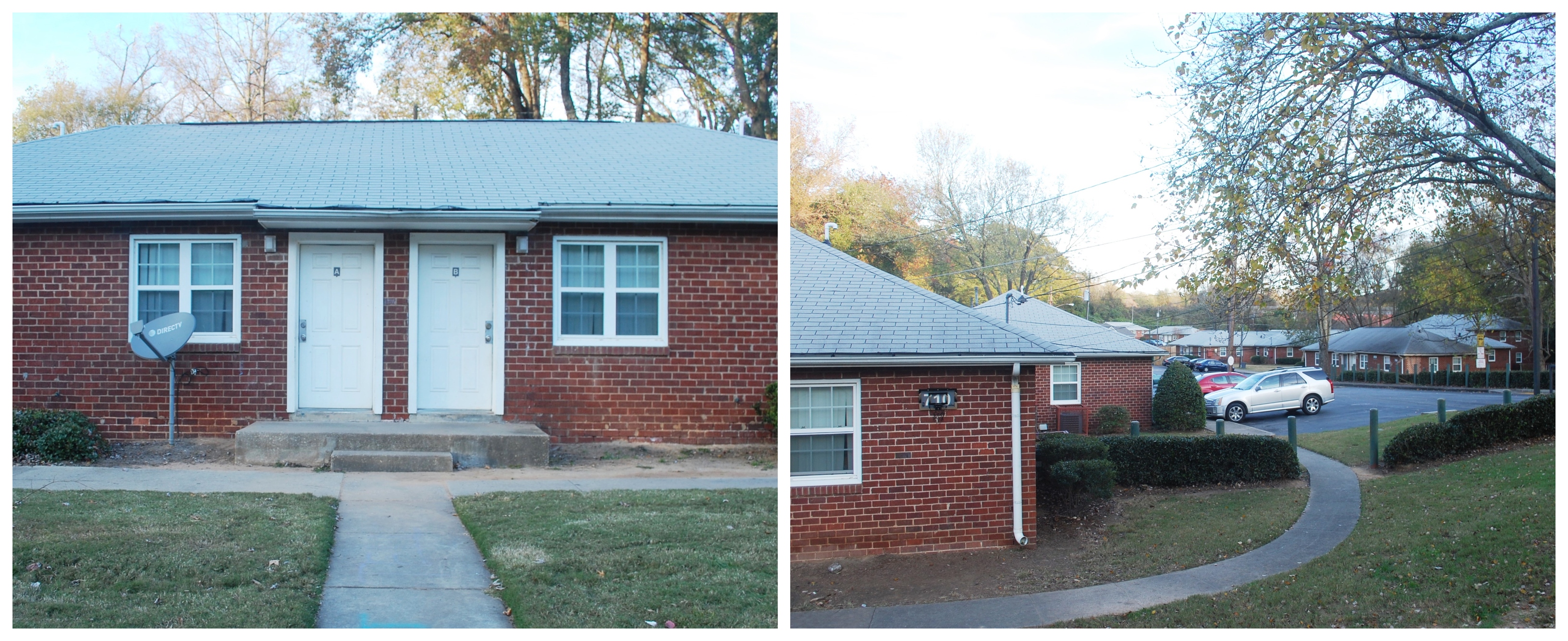
“I say it’s like we’re in prison being here, because literally people got violations for having a grill on their porch,” says Velissa Sims, another tenant.
She says they come home to these lease violations on their doors all the time — lease violations that could lead to evictions.
“Which gets stressful when you already have a lot going on as a single mom,” Sims says. “And then you have to think about where you’re going to live or where you’re going to stay.”
A few of these tenants have already fought evictions in court. Sims says she’s been before a judge three times.
They say the property manager also bans visitors with little explanation and questions their requests for repairs. It’s like they’re always on notice.
They’re tired.
So these women — all young, Black single mothers — started a tenants association.
“We’re asking just to be treated with respect, like regular human beings,” Fletcher says.
Their group, Trestletree United Tenants Association, has been meeting for months. They’ve gained the support of a dozen or so other residents. But change has been difficult. They say management still won’t recognize them.
And what’s complicated their effort is the neighborhood.
Some homeowners in the area around Trestletree prefer management at the 200-unit complex stay the same.
Among them, Dean Hanley might be the most outspoken.
“I just want to know where these people were five years ago when we were having shootings two, three times a week — like, gunfire — out of Trestletree?” he asks.
He lives nearly a mile from the southern end of the complex — Trestletree is split between two locations. But Hanley has put himself in charge of public safety problems for the whole area.
He says a lot of those problems were at Trestletree.
Once, a person with a gun wandered from Trestletree North to the grounds of Parkside Elementary School next door. In response, the neighborhood held a town hall.
“So that’s all people would talk about, but nobody could ever get anything going and no traction,” Hanley says. “Until Ms. Shane got in there.”
“Ms. Shane” took over as property manager a few years ago. While she wouldn’t do an interview, she framed her enforcement of rules in a 2018 court deposition as preserving the “safety and security” of the property.
Hanley acts like her surrogate. He says because of her, Trestletree is safer with less crime and fewer shootings
At the very least, Atlanta Police have reported fewer calls about the complex’s two locations over the last few years.
Atlanta Legal Aid attorney Miriam Gutman acknowledged the possibility that management is responsible for the decline. Still, she wonders if safety measures at Trestletree come at the expense of tenants.
“Who is feeling safer, and who is having to pay for that?” Gutman asks.
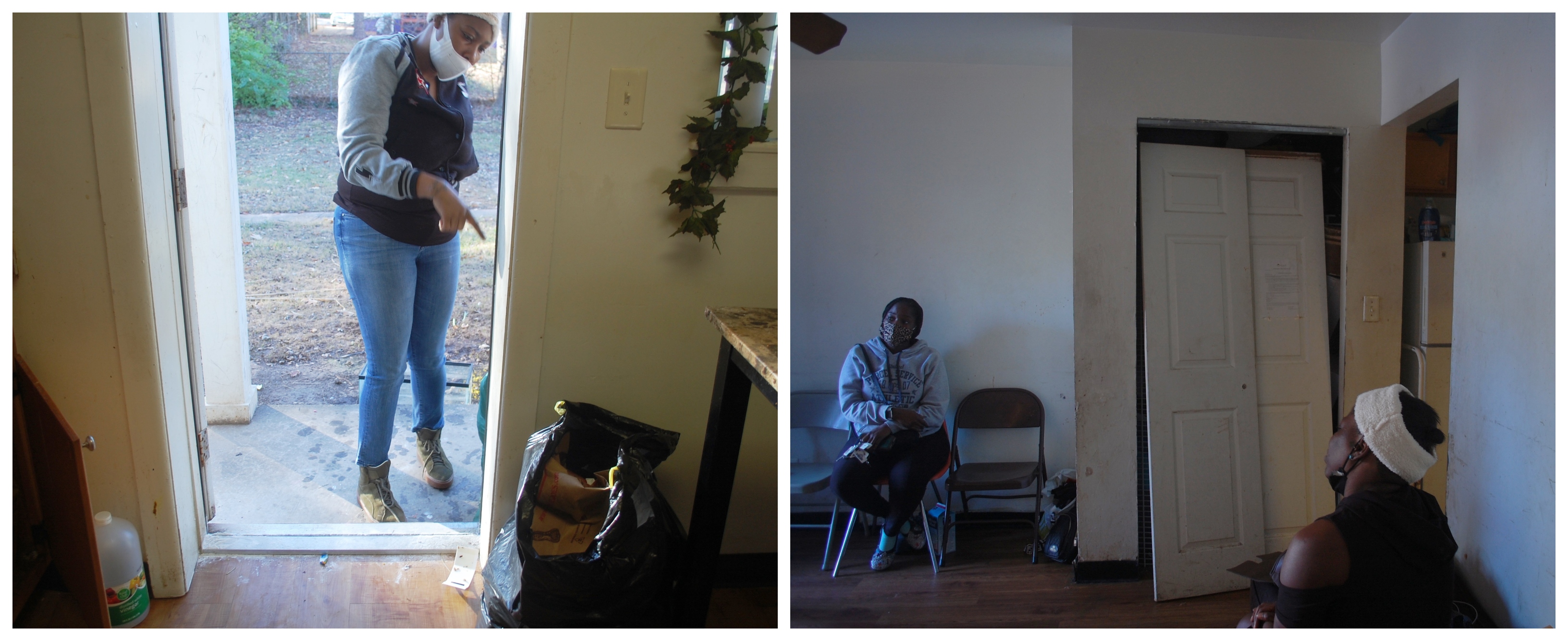
She’s represented 20 different residents at Trestletree, most since the change in management and many involving evictions over minor or arbitrary violations.
“I’ve had way more cases at Trestletree than any other property even comes close,” she said.
In one of her cases from 2018, management cited a tenant for allowing a guest in her apartment after participating in a robbery. In reality, Gutman says, the guest was the tenant’s sister and she had been the victim of the robbery.
According to Gutman, government-subsidized properties don’t have to compete for tenants, so it’s common for their property managers to ignore residents’ needs.
What makes Trestletree unique is its location, an area where the median income can climb above a hundred-thousand dollars.
“That probably puts management in a situation where they feel like they have to create some environment that the gentrifying community is happy with, rather than the tenants who live on the property,” Gutman says.
With a recognized tenants union, she says management would have to pay attention to residents and get their input on policies at the property.
Unlike renters in privately run apartments, the Trestletree tenants have the right to organize. The Department of Housing and Urban Development allows residents in all federally funded developments to form associations.
For that reason, the Housing Justice League has helped start residents associations at several assisted properties. Stanton Oaks in Peoplestown and City Views at Rosa Burney Park in Mechanicsville are both examples.
The organization is now supporting the tenants at Trestletree in their fight for recognition from management.
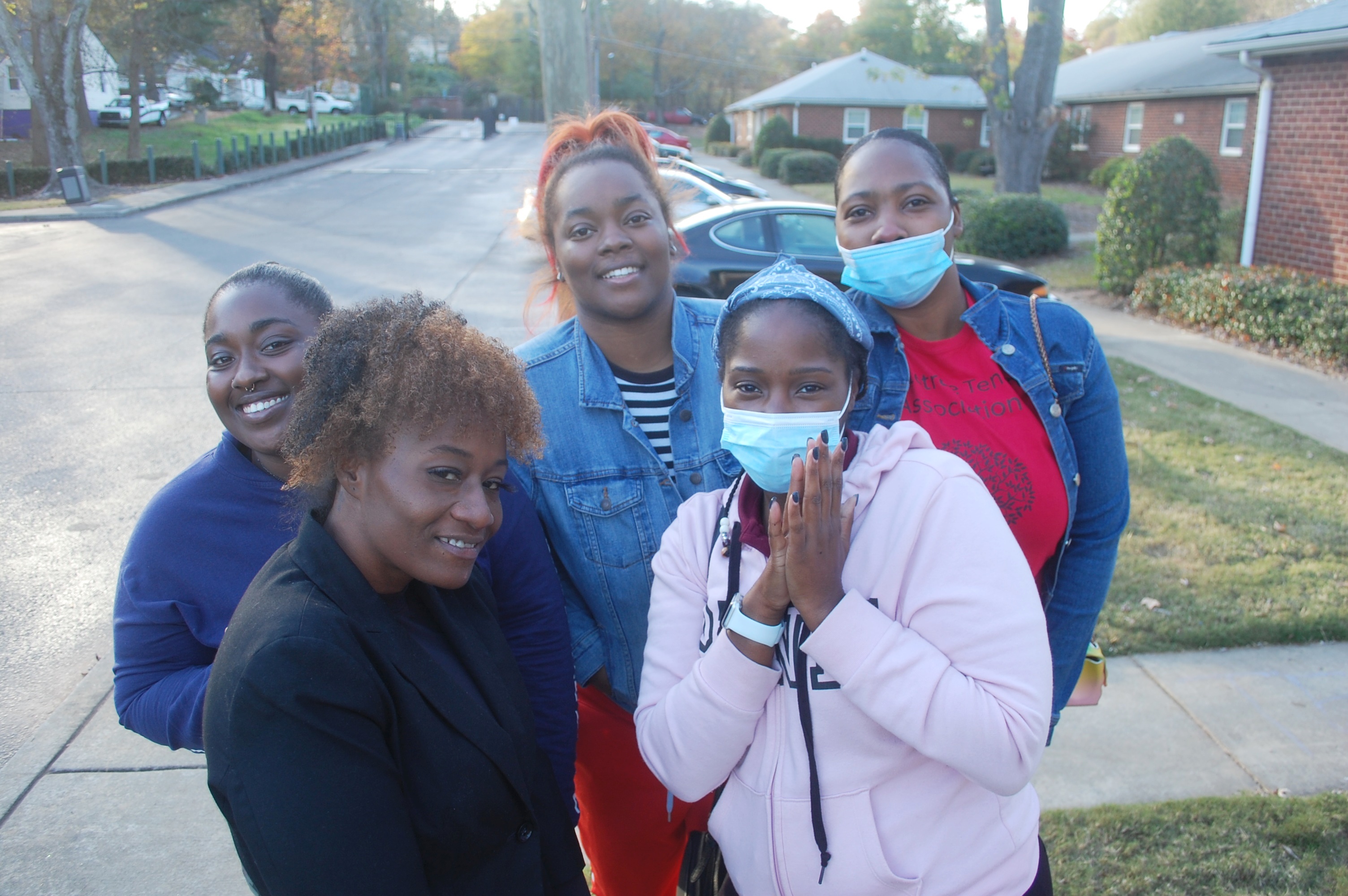
The company behind Trestletree’s property management, Colorado-based Monroe Group, says it tried to meet with the new tenants union. The tenants say the company changed the meeting location with little notice.
In general, Monroe Group says it follows guidelines for federally funded housing.
Hanley, the homeowner from the neighborhood, says he believes management is operating according to HUD policies. He sees the organizing effort as a minority of tenants who are frustrated with the rules.
“When you’re getting this assistance, you’re gonna have some rules,” he says, “probably more than I do, for sure. But it’s back to respecting your neighbors and realizing this is a gift.”
The government assistance is a gift, he means.
The women behind Trestletree United Tenants Association are familiar with this view of subsidized housing. Sims says tenants like her are happy to be at Trestletree, with its proximity to the center of Atlanta, good schools and, again, the BeltLine.
“We are very grateful for the subsidizing housing, even for us to be able to have a home to call our own to come home to. Yes, we are,” she says. “But are we happy about the stress that comes along with the home? Absolutely not.”
The tenants say they deserve to live comfortably, too.
A lot of them work. They pay rent, even if it’s not full price. They say they don’t mind rules. They just want to talk about what those rules are.
Their group has filed a complaint with HUD, arguing management is interfering with a legitimate tenants union. They’re scheduled to meet with federal representatives next week.

